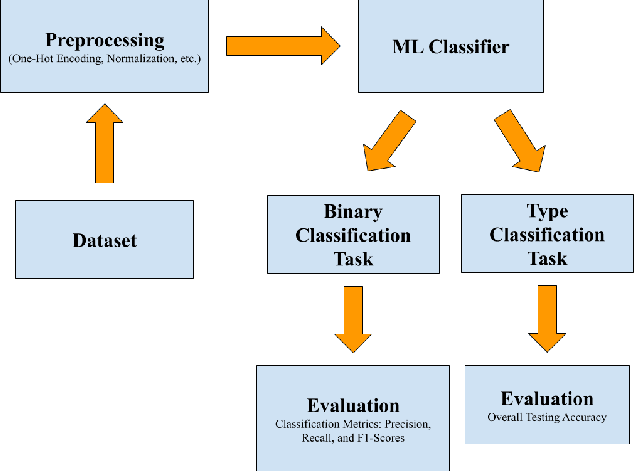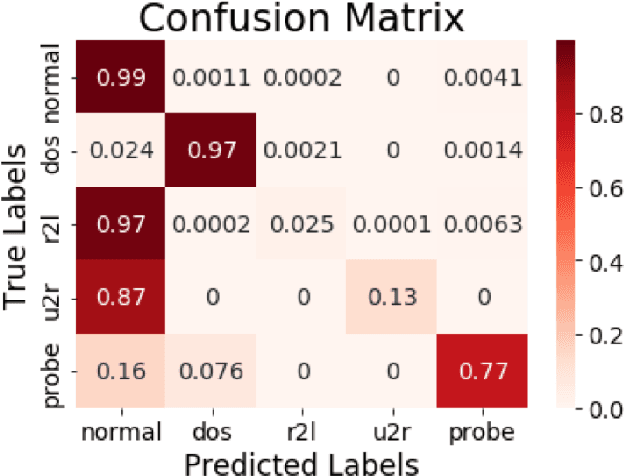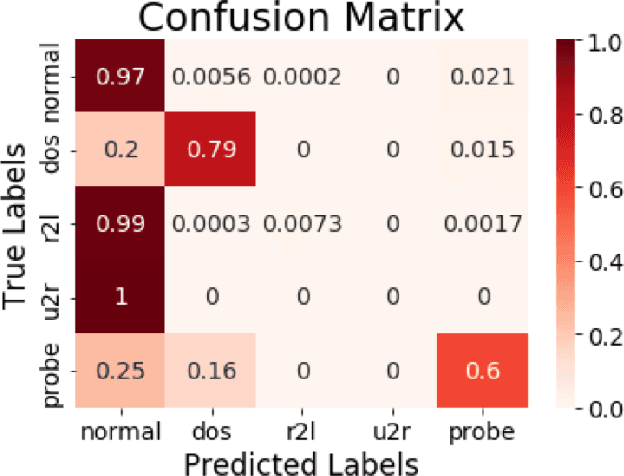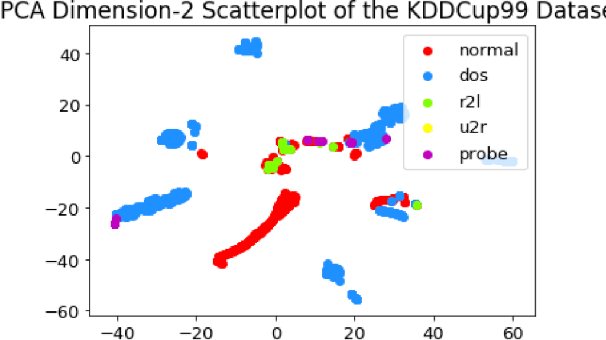A Robust Comparison of the KDDCup99 and NSL-KDD IoT Network Intrusion Detection Datasets Through Various Machine Learning Algorithms
Paper and Code
Dec 31, 2019



In recent years, as intrusion attacks on IoT networks have grown exponentially, there is an immediate need for sophisticated intrusion detection systems (IDSs). A vast majority of current IDSs are data-driven, which means that one of the most important aspects of this area of research is the quality of the data acquired from IoT network traffic. Two of the most cited intrusion detection datasets are the KDDCup99 and the NSL-KDD. The main goal of our project was to conduct a robust comparison of both datasets by evaluating the performance of various Machine Learning (ML) classifiers trained on them with a larger set of classification metrics than previous researchers. From our research, we were able to conclude that the NSL-KDD dataset is of a higher quality than the KDDCup99 dataset as the classifiers trained on it were on average 20.18% less accurate. This is because the classifiers trained on the KDDCup99 dataset exhibited a bias towards the redundancies within it, allowing them to achieve higher accuracies.
 Add to Chrome
Add to Chrome Add to Firefox
Add to Firefox Add to Edge
Add to Edge